
Ein Gedi - Oasis of Natural Wonders
Ein Gedi, located by the Dead Sea in Israel, is a natural oasis that captivates visitors with its stunning landscapes and rich history. Nestled between arid desert and lush greenery, Ein Gedi offers a unique blend of natural beauty and ancient culture. With its waterfalls, hot springs, and wildlife, this destination is perfect for nature lovers and history buffs alike. The Ein Gedi Nature Reserve is a must-visit, featuring two main hiking trails: Nahal David and Nahal Arugot. These trails lead you through refreshing streams, enchanting waterfalls, and caves that have been used since ancient times. The reserve is home to ibexes, rock hyraxes, and a diverse range of bird species, making it a paradise for animal enthusiasts. In addition to its natural wonders, Ein Gedi is steeped in history. The ancient synagogue with its beautiful mosaic floor offers a glimpse into the life of the Jewish community from the Byzantine period. Nearby, the Ein Gedi Botanical Garden showcases a vast collection of plants from around the world, making it an educational and enjoyable experience for all ages. For those seeking relaxation, the Ein Gedi Spa provides access to the mineral-rich waters of the Dead Sea. The therapeutic properties of the mud and water are world-renowned, promising a rejuvenating experience. Whether you're exploring the reserve, soaking in the Dead Sea, or uncovering historical treasures, Ein Gedi is a destination that promises unforgettable memories.
Local tips in Ein Gedi
- Visit early in the morning to avoid the midday heat and crowds, especially during the summer.
- Carry plenty of water and wear comfortable hiking shoes when exploring the nature reserve.
- Don't miss the chance to float in the Dead Sea; remember to bring a swimsuit and avoid shaving a day before to prevent irritation.
- Check the opening hours of the Ein Gedi Spa and Nature Reserve ahead of time, as they may vary by season.
- Bring binoculars for bird watching and to get a closer look at the ibexes and other wildlife.
Ein Gedi - Oasis of Natural Wonders
Ein Gedi, located by the Dead Sea in Israel, is a natural oasis that captivates visitors with its stunning landscapes and rich history. Nestled between arid desert and lush greenery, Ein Gedi offers a unique blend of natural beauty and ancient culture. With its waterfalls, hot springs, and wildlife, this destination is perfect for nature lovers and history buffs alike. The Ein Gedi Nature Reserve is a must-visit, featuring two main hiking trails: Nahal David and Nahal Arugot. These trails lead you through refreshing streams, enchanting waterfalls, and caves that have been used since ancient times. The reserve is home to ibexes, rock hyraxes, and a diverse range of bird species, making it a paradise for animal enthusiasts. In addition to its natural wonders, Ein Gedi is steeped in history. The ancient synagogue with its beautiful mosaic floor offers a glimpse into the life of the Jewish community from the Byzantine period. Nearby, the Ein Gedi Botanical Garden showcases a vast collection of plants from around the world, making it an educational and enjoyable experience for all ages. For those seeking relaxation, the Ein Gedi Spa provides access to the mineral-rich waters of the Dead Sea. The therapeutic properties of the mud and water are world-renowned, promising a rejuvenating experience. Whether you're exploring the reserve, soaking in the Dead Sea, or uncovering historical treasures, Ein Gedi is a destination that promises unforgettable memories.
When is the best time to go to Ein Gedi?
Iconic landmarks you can’t miss
Ein Gedi Hotel
Discover the serenity of Ein Gedi Hotel, your gateway to the Dead Sea's natural wonders and rich historical treasures.
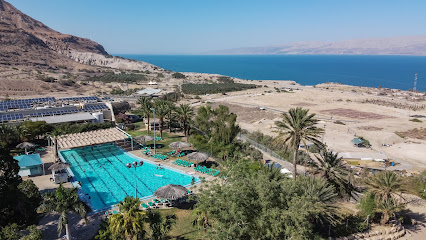
Wadi Arugot
Discover the breathtaking beauty of Wadi Arugot, a premier hiking destination in Israel's Ein Gedi region, where nature and adventure await.
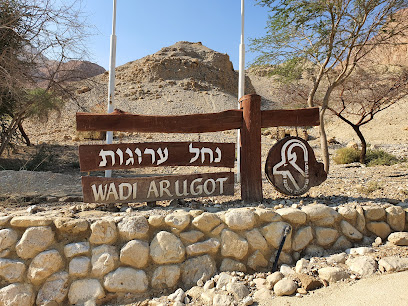
Ein Gedi Botanical Garden
Explore the stunning Ein Gedi Botanical Garden, where diverse flora meets breathtaking landscapes near the Dead Sea.
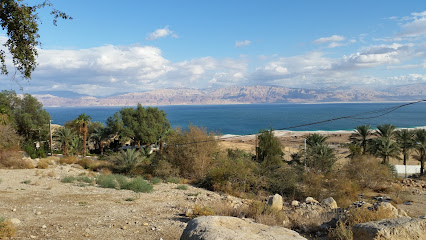
Khan Ein Gedi
Experience the serene beauty of Khan Ein Gedi, a campground nestled in Israel's stunning landscapes, perfect for nature lovers and adventure seekers.
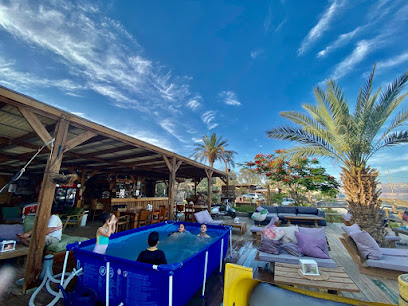
Ein Gedi Reserve Ancient Synagogue
Explore the ancient ruins of Ein Gedi Reserve Ancient Synagogue, a captivating archaeological site steeped in history and surrounded by breathtaking nature.
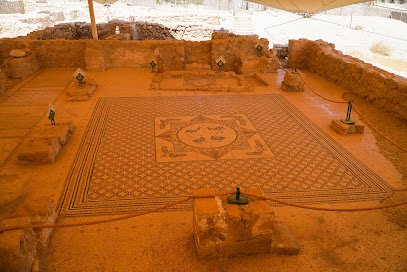
Ein Gedi Camp Lodge
Experience the serenity of Ein Gedi Camp Lodge, a perfect blend of nature, comfort, and ancient history in the heart of the Judean Desert.

Dead-Sea Camping
Discover the tranquil beauty of Dead-Sea Camping, where adventure meets comfort in the heart of Ein Gedi, Israel.
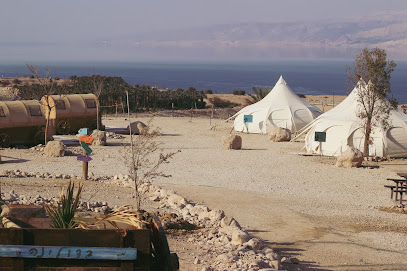
Ein Gedi Beach
Experience the tranquil beauty of Ein Gedi Beach, where the Dead Sea meets stunning desert landscapes for a perfect getaway.
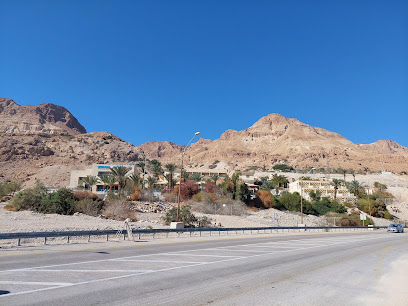
Ein Gedi Eco Park
Explore Ein Gedi Eco Park, a stunning national reserve near the Dead Sea, brimming with lush landscapes, wildlife, and tranquil hiking trails.
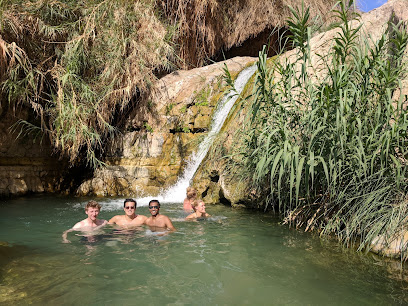
Ein Gedi Baths
Discover tranquility at Ein Gedi Baths, where the healing waters of the Dead Sea meet the stunning beauty of nature for an unforgettable rejuvenation experience.
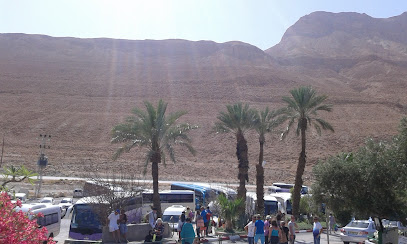
Synergy Spa, Ein Gedi Hotel
Discover ultimate relaxation at Synergy Spa, nestled in the beautiful Ein Gedi oasis, where wellness meets stunning natural landscapes.
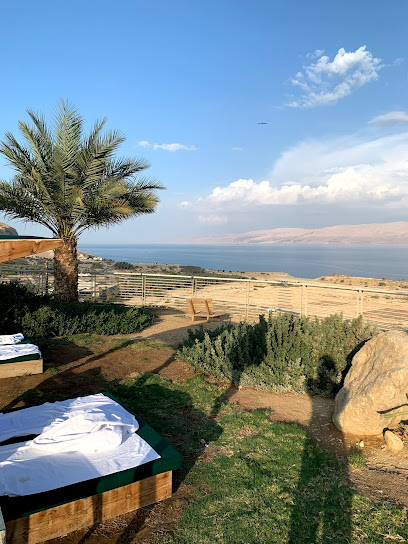
Ein Gedi beach water
Experience the serene beauty and therapeutic waters of Ein Gedi Beach, a tranquil campground by the Dead Sea, perfect for relaxation and adventure.
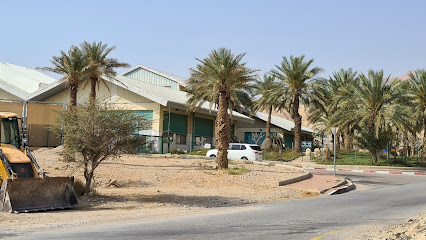
Ain Jidy
Experience the serene beauty of Ain Jidy Springs, a tranquil oasis in Israel known for its crystal-clear waters and lush greenery, perfect for relaxation.
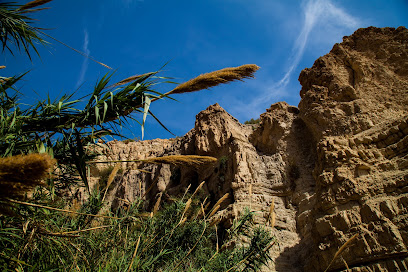
Ein Gedi Reservation
Discover the breathtaking beauty and rich biodiversity of Ein Gedi Reservation, a serene oasis near the Dead Sea, perfect for nature lovers and adventurers.
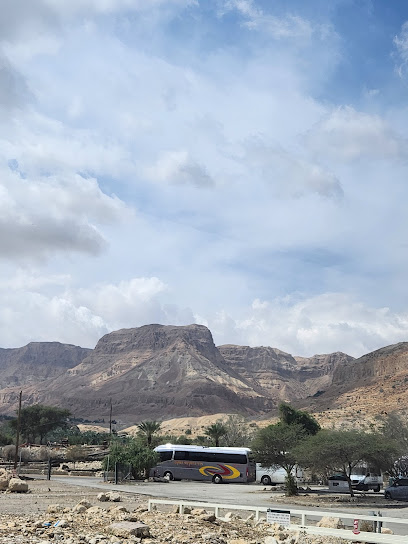
Ein Gedi Cemetery
Visit Ein Gedi Cemetery, a serene resting place that beautifully intertwines history and nature in the heart of the Dead Sea region.
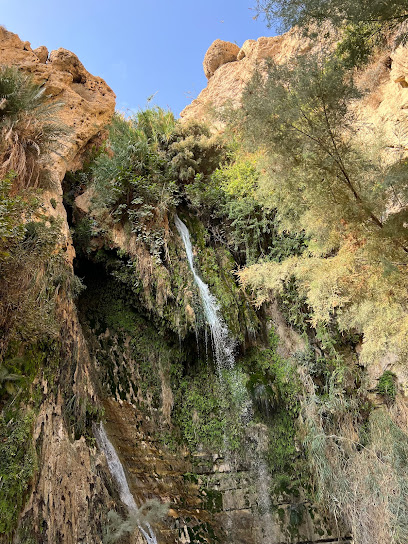
Unmissable attractions to see
Mahaneh Yehudah Market
Discover the heart of Jerusalem at Mahaneh Yehudah Market, where vibrant stalls and delicious flavors come together in a cultural feast.
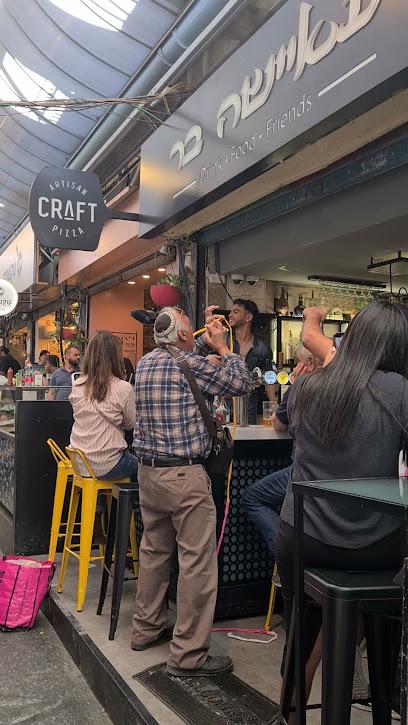
Masada National Park
Discover the historical marvel of Masada National Park, a stunning desert fortress with breathtaking views and rich cultural heritage.
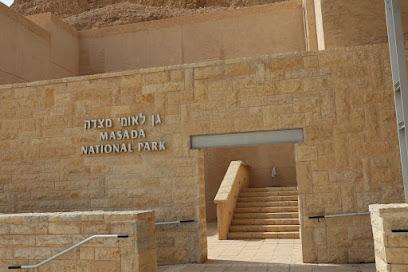
Church of the Holy Sepulchre
Explore the Church of the Holy Sepulchre in Jerusalem, a sacred site rich in history and spirituality, attracting millions of pilgrims and tourists every year.
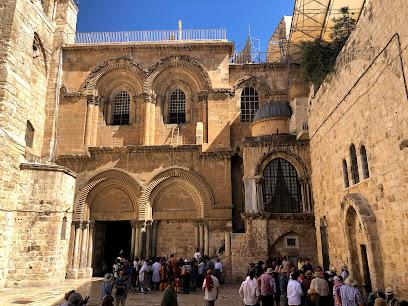
Al-Aqsa Mosque
Discover the Al-Aqsa Mosque, a stunning Islamic sanctuary in Jerusalem, rich in history and spirituality, attracting visitors from around the world.
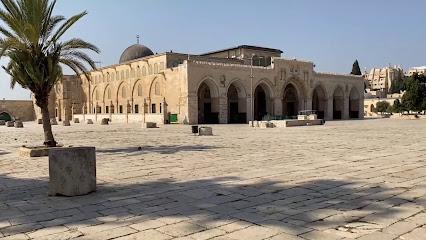
The First Station
Experience the vibrant atmosphere of The First Station in Jerusalem, where history meets modernity with shops, dining, and cultural events.
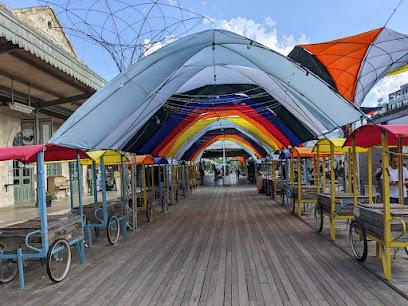
Yad Vashem
Discover Yad Vashem, Jerusalem's Holocaust memorial, an essential cultural center honoring history and promoting remembrance with powerful exhibits and educational programs.
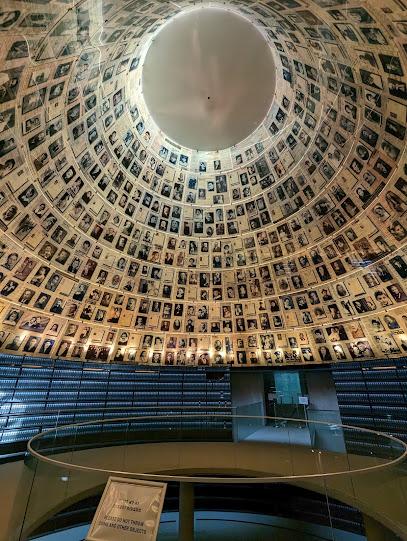
The Israel Museum, Jerusalem
Explore the Israel Museum in Jerusalem, a cultural landmark featuring art, archaeology, and the Dead Sea Scrolls in a stunning setting.
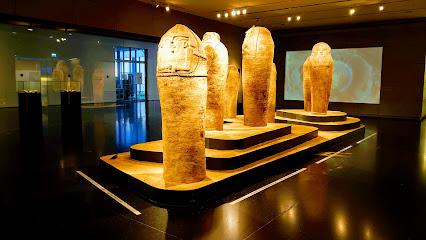
Gethsemane
Discover Gethsemane in Jerusalem: a historical and spiritual haven with ancient olive trees and profound biblical significance.
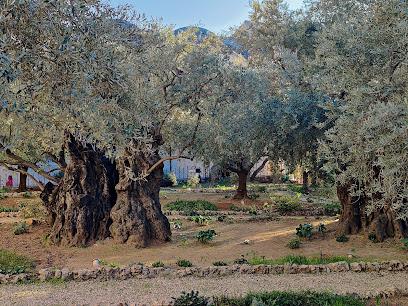
Ein Bokek beach
Experience the healing powers of Ein Bokek Beach, where the unique Dead Sea waters and stunning desert landscapes create a perfect getaway.
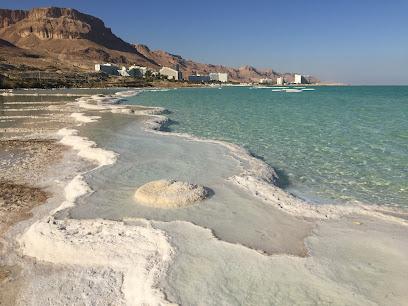
Sacher Park
Experience the beauty of Sacher Park, a lush urban retreat in Jerusalem, perfect for relaxation, family fun, and unforgettable moments.
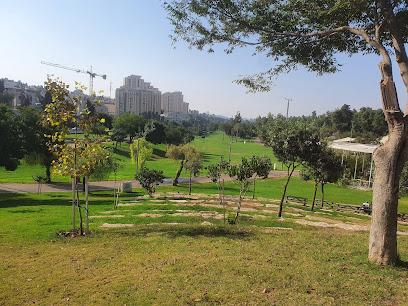
Church of the Nativity
Experience the profound spiritual heritage of the Church of the Nativity, a UNESCO World Heritage site in Bethlehem, marking the birthplace of Jesus Christ.
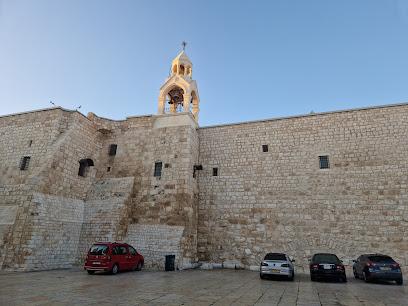
Zion Gate
Explore Zion Gate in Jerusalem, a historic monument that offers a glimpse into the ancient city's rich past and vibrant cultural heritage.
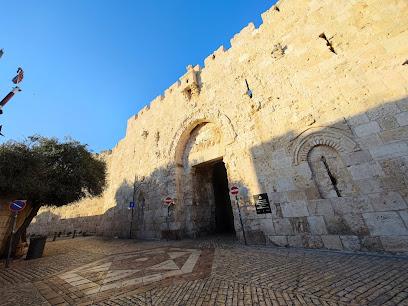
Tower of David
Discover the rich history and stunning views at the Tower of David, Jerusalem's iconic fortress and museum, where past and present beautifully intertwine.
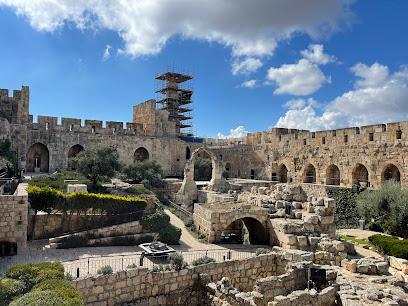
Damascus Gate
Discover the historic charm and vibrant life surrounding Jerusalem's Damascus Gate, a gateway to the city's rich heritage and cultural tapestry.
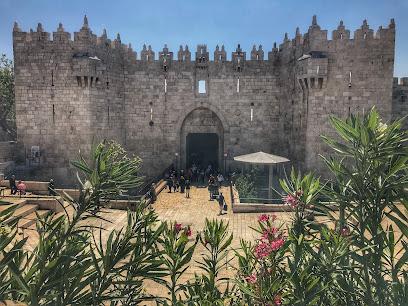
Kerak Castle
Discover the captivating history and stunning architecture of Kerak Castle, a remarkable Crusader fortress in the heart of Jordan.
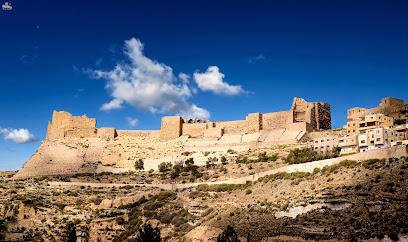
Essential places to dine
Taj Mahal
Experience authentic Middle Eastern cuisine at Taj Mahal in Ein Bokek – where every dish tells a story.
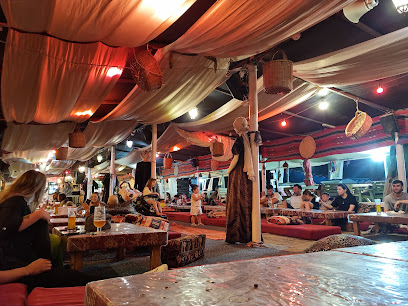
Mul Hayam
Experience culinary delight with stunning views at Mul Hayam near the enchanting Dead Sea.
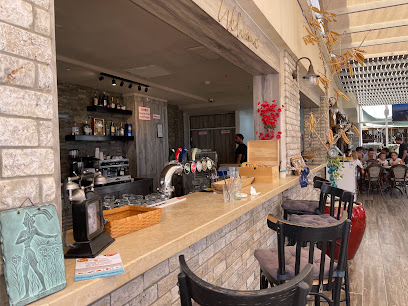
Greg cafe
Discover the culinary delights of Greg Cafe in Ein Bokek - your perfect breakfast destination by the Dead Sea.
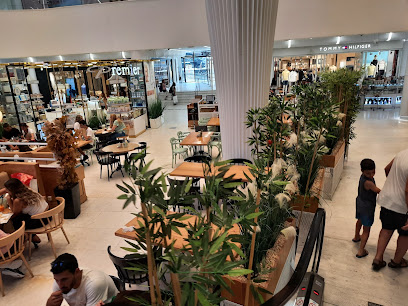
Ein Bokek Restaurant
Experience exquisite dining at Ein Bokek Restaurant with stunning views of the Dead Sea, offering diverse dishes that delight every palate.
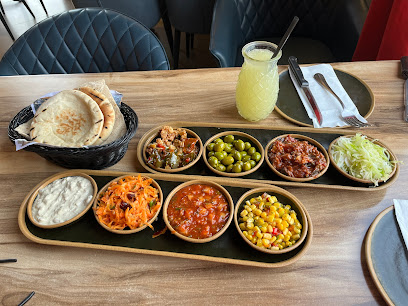
Last Chance
Discover exquisite flavors at Last Chance Restaurant near the Dead Sea—where every meal is a celebration of local cuisine amidst stunning scenery.
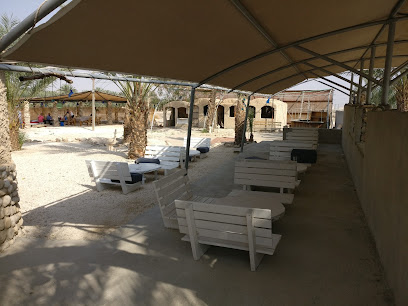
Ein Gedi Hotel Restaurant
Discover exquisite local flavors at Ein Gedi Hotel Restaurant surrounded by breathtaking desert landscapes.
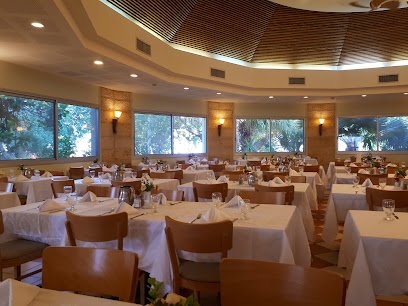
בדולינה עין גדי גלאמפינג Badolina Ein Gedi Glamping
Experience luxury camping at Badolina Ein Gedi Glamping - where nature meets comfort in stunning surroundings.
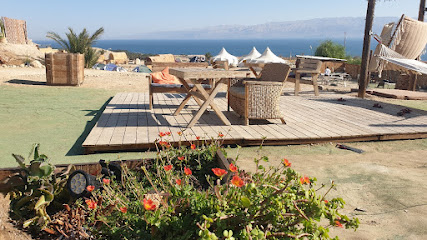
קפסיטו ים המלח - Cafécito Dead Sea
Experience culinary delights at Cafécito Dead Sea - where great food meets dog-friendly vibes amidst stunning landscapes.
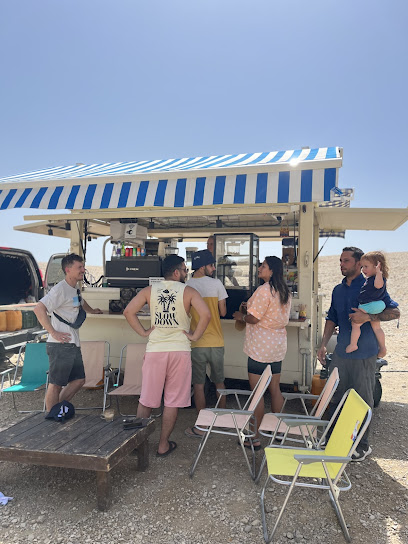
Baobar
Experience culinary bliss at Baobar in Ein Gedi - where local flavors meet exceptional hospitality amidst breathtaking landscapes.
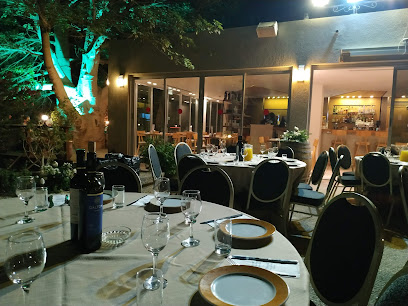
Dead-Sea Camping
Discover tranquility at Dead-Sea Camping - where nature meets comfort in stunning Ein Gedi.
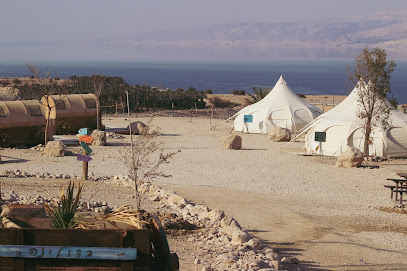
מזנון נחל דוד
Experience authentic Israeli flavors at Miznon Nachal David in Ein Gedi, surrounded by stunning desert landscapes and rich cultural heritage.
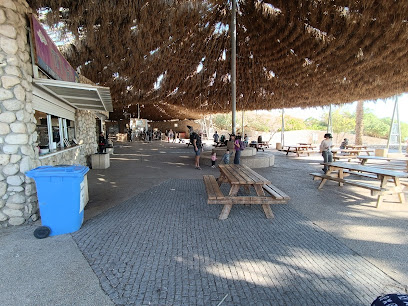
חדר אוכל מלון עין גדי
Discover culinary excellence at Ein Gedi Restaurant amidst breathtaking landscapes and authentic Israeli flavors.

Grandpa's Kitchen
Experience authentic pizza at Grandpa's Kitchen in Mitspe Shalem – where tradition meets flavor in every delicious slice.

Masada Mt. Restaurant
Experience culinary delights with breathtaking views at Masada Mt. Restaurant overlooking the historic Dead Sea region.
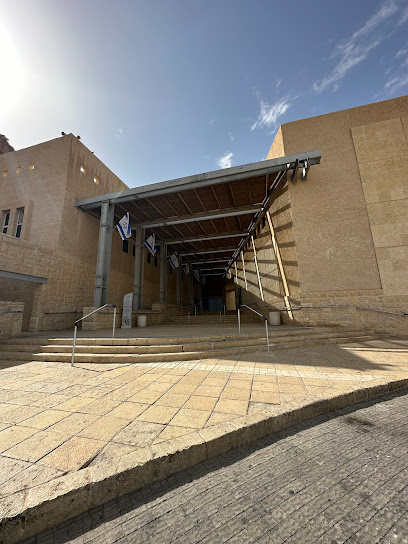
קפה אהבה Cafe AHAVA
Experience the serene charm of Cafe AHAVA in Ein Gedi with delightful coffee and mouthwatering vegetarian dishes amidst stunning natural beauty.
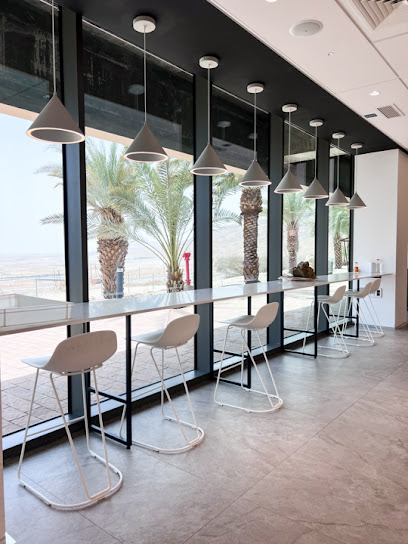
Markets, malls and hidden boutiques
Alrov Mamilla Avenue
Discover Alrov Mamilla Avenue: Jerusalem's premier shopping destination with luxury boutiques, dining, and a vibrant atmosphere.
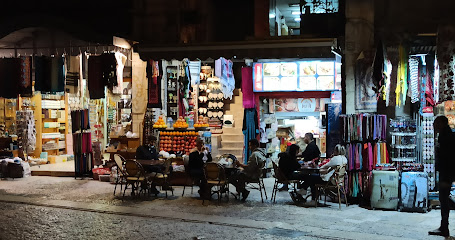
Ein Gedi Hotel
Discover the tranquility of Ein Gedi Hotel, a serene oasis near the Dead Sea, perfect for relaxation and adventure in nature's embrace.
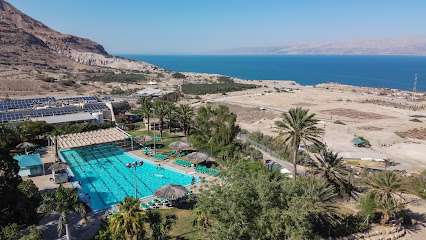
Wadi Arugot
Explore the breathtaking beauty of Wadi Arugot, a premier hiking destination in Ein Gedi, offering stunning landscapes and refreshing water pools.
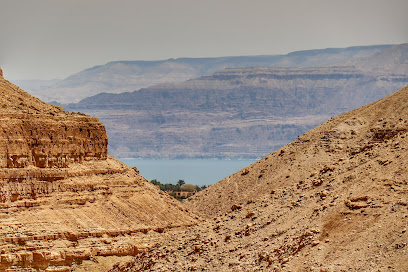
Visitor Center Ahava
Discover the beauty of Dead Sea cosmetics at the Ahava Visitor Center in Ein Gedi, where nature meets skincare innovation.
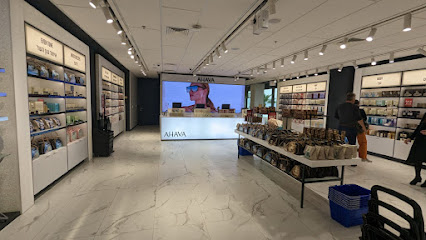
Ein Gedi Botanical Garden
Experience the lush beauty of Ein Gedi Botanical Garden, a serene oasis filled with diverse plant life and stunning landscapes near the Dead Sea.
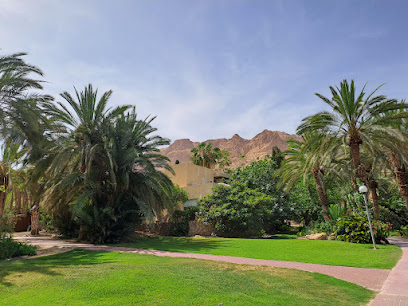
Khan Ein Gedi
Experience the beauty of Khan Ein Gedi, a serene campground in the heart of the desert, offering adventure and tranquility near the Dead Sea.
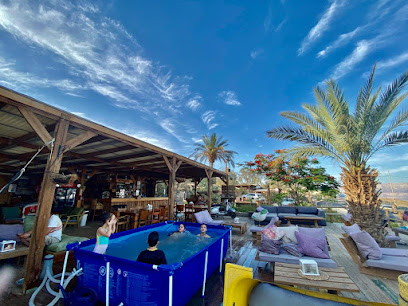
Ein Gedi Reserve Ancient Synagogue
Explore the rich history of the Ein Gedi Reserve Ancient Synagogue, where ancient Jewish culture meets breathtaking desert landscapes.
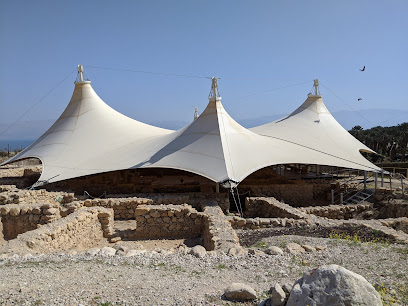
Ein Gedi Camp Lodge
Experience the tranquility of Ein Gedi Camp Lodge, where adventure meets comfort in the heart of nature's beauty.

Zak’s Jerusalem Gifts
Discover unique antiques and authentic souvenirs at Zak’s Jerusalem Gifts, a treasure trove in the heart of Jerusalem's vibrant shopping scene.
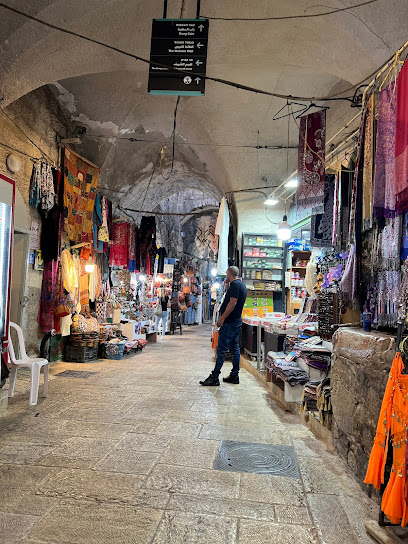
בדולינה עין גדי גלאמפינג Badolina Ein Gedi Glamping
Discover the beauty of nature at Badolina Ein Gedi Glamping, where luxury meets the great outdoors in the heart of Israel's stunning landscapes.
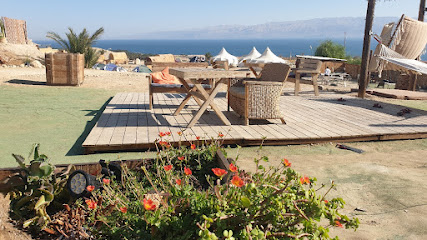
מרכז קניות הורדוס Hordus Shopping Center
Explore Hordus Shopping Center: A lively shopping and dining destination by the Dead Sea with diverse eateries, shops, and local flavors.
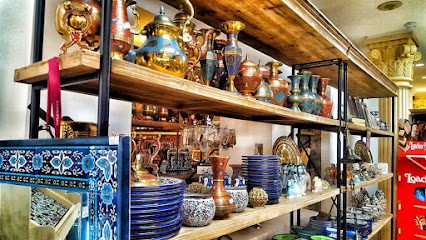
Dead-Sea Camping
Discover the ultimate camping experience by the Dead Sea, where adventure meets serenity amidst breathtaking landscapes.
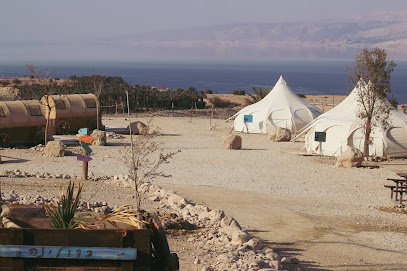
Mamydo Baby gifts - Israel
Explore Mamydo Baby Gifts in Israel for unique baby products, quality gifts, and exceptional service in a welcoming atmosphere.

Ein Gedi Beach
Discover the serenity of Ein Gedi Beach, a tranquil oasis on the Dead Sea perfect for relaxation, nature hikes, and unforgettable views.
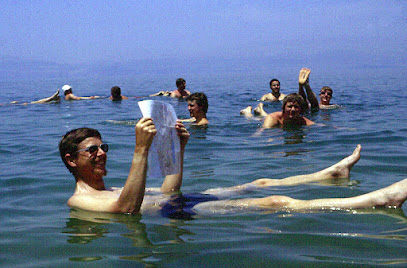
Havat Reim Lapidot
Explore Havat Reim Lapidot, a boutique offering unique artisan goods that reflect local culture and craftsmanship, perfect for memorable souvenirs.
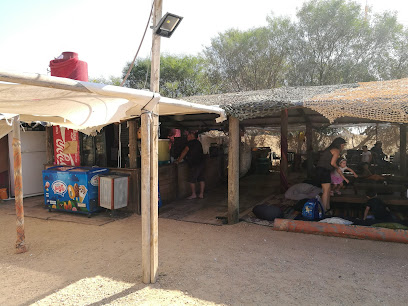
Essential bars & hidden hideouts
Ein Gedi Hotel
Discover the tranquility of Ein Gedi Hotel, your gateway to breathtaking views and serene experiences in the heart of Israel's natural wonders.
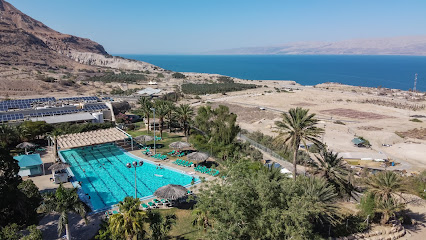
Ein Gedi Botanical Garden
Discover the enchanting beauty of Ein Gedi Botanical Garden, a unique oasis in the desert showcasing diverse flora and serene landscapes.
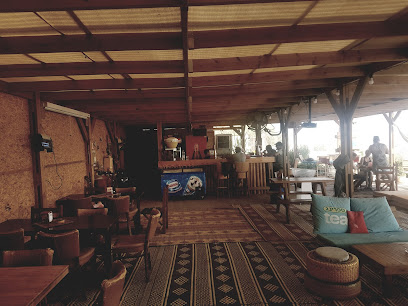
Khan Ein Gedi
Experience the tranquil beauty of Khan Ein Gedi, a serene campground nestled in a stunning desert oasis, ideal for relaxation and outdoor adventures.
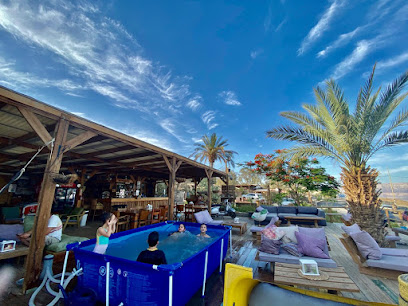
Lowest Bar in the World
Discover the Lowest Bar in the World at Kalia Beach, a vibrant destination offering stunning views and refreshing drinks.
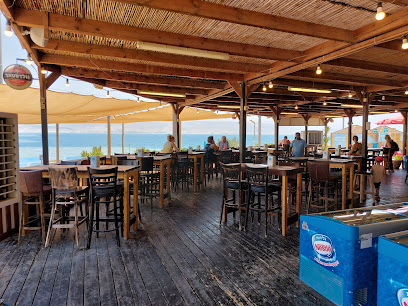
Ein Gedi Camp Lodge
Discover the beauty and serenity of Ein Gedi Camp Lodge, your perfect retreat in the stunning Dead Sea region of Israel.

Ein Gedi Hotel Restaurant
Experience exquisite dining at Ein Gedi Hotel Restaurant with stunning views of nature and a menu inspired by local flavors.
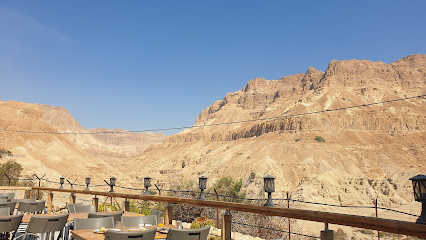
בדולינה עין גדי גלאמפינג Badolina Ein Gedi Glamping
Discover a unique glamping experience at Badolina Ein Gedi, where nature meets comfort in an exquisite oasis.
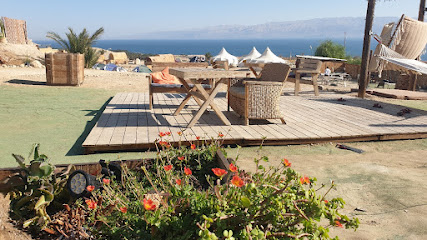
Baobar
Experience the culinary delights of Baobar in Ein Gedi, where local flavors meet stunning desert views for an unforgettable dining experience.
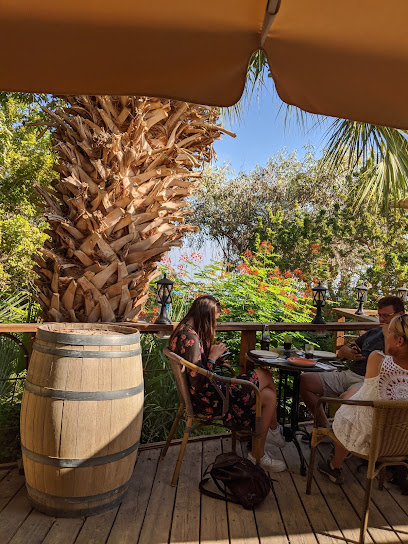
Dead-Sea Camping
Discover the beauty of Dead-Sea Camping in Ein Gedi, where adventure meets relaxation amidst stunning landscapes and culinary delights.
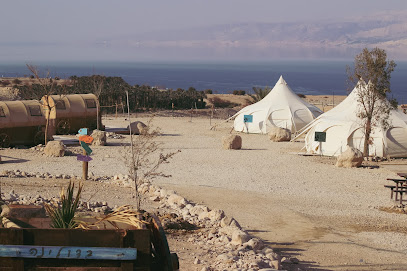
Ein Gedi Eco Park
Explore Ein Gedi Eco Park: A stunning national reserve in the Judean Desert with diverse wildlife, ancient ruins, and breathtaking views.
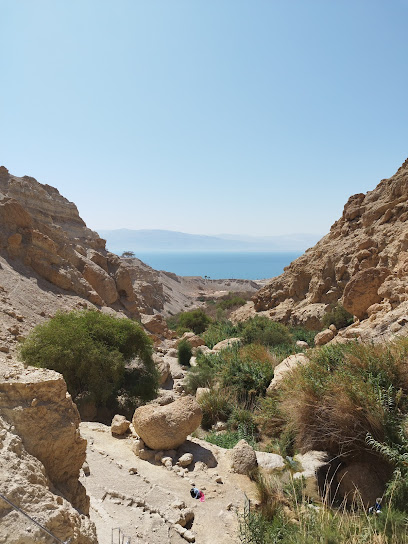
מזנון נחל דוד
Savor the local flavors at מזנון נחל דוד, a charming diner nestled in Ein Gedi's breathtaking landscapes, perfect for a relaxing meal.
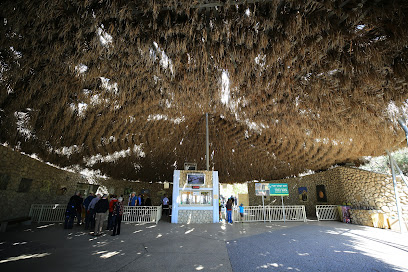
חדר אוכל מלון עין גדי
Experience the flavors of Israel at the Ein Gedi Restaurant, where breathtaking views and local cuisine come together for an unforgettable dining adventure.

Bar's suite Ein-gedi בר סוויט עין גדי
Discover the perfect blend of luxury and nature at Bar's Suite Ein-Gedi, your tranquil escape in the heart of Israel's breathtaking landscapes.
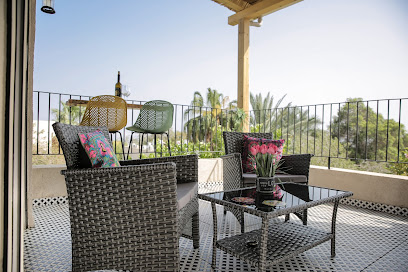
קפה אהבה Cafe AHAVA
Discover Cafe AHAVA in Ein Gedi, where delicious vegetarian cuisine meets stunning natural beauty, perfect for a serene dining experience.
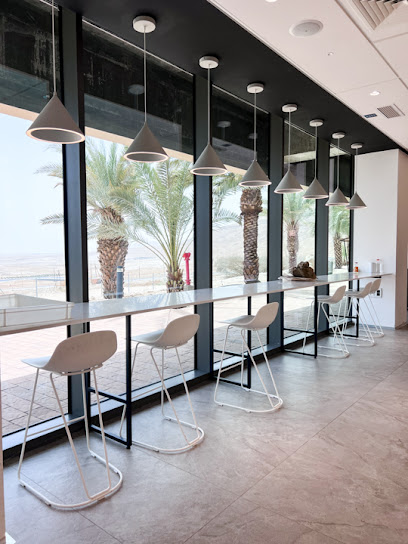
Local Phrases
-
- Helloשָׁלוֹם
[Shalom] - Goodbyeלְהִתְרָאוֹת
[Lehitraot] - Yesכֵּן
[Ken] - Noלֹא
[Lo] - Please/You're welcomeבבקשה
[Bevakasha] - Thank youתּוֹדָה
[Toda] - Excuse me/Sorryסְלִיחָה
[Slicha] - How are you?אֵיך אַתָּה?
[Eich Ata?] - Fine. And you?טוֹב. וָאַתָּה?
[Tov. Va'ata?] - Do you speak English?הֲאַתָּה מְדַבֵּר אַנְגְלִית?
[Ha'ata Medaber Anglit?] - I don't understandאני לא מבין
[Ani lo mevin]
- Helloשָׁלוֹם
-
- I'd like to see the menu, pleaseאני רוצה לראות את התפריט, בבקשה
[Ani rotsa lir'ot et hate'arit, bevakasha] - I don't eat meatאני לא אוכל בשר
[Ani lo ochel basar] - Cheers!לחיים!
[Lechayim!] - I would like to pay, pleaseאני רוצה לשלם, בבקשה
[Ani rotsa lishlem, bevakasha]
- I'd like to see the menu, pleaseאני רוצה לראות את התפריט, בבקשה
-
- Help!עזרה!
[Ezra!] - Go away!לך לעברך!
[Lech le'artzecha!] - Call the Police!קרא למשטרה!
[Kra lameshutera!] - Call a doctor!קרא לרופא!
[Kra larofe!] - I'm lostאני לאבדתי
[Ani ibadeti] - I'm illאני חולה
[Ani choleh]
- Help!עזרה!
-
- I'd like to buy...אני רוצה לקנות...
[Ani rotsa liknot...] - I'm just lookingאני רק מסתכל
[Ani rak mistakel] - How much is it?כמה זה עולה?
[Kama ze ole?] - That's too expensiveזה יקר מדי
[Ze yikar madi] - Can you lower the price?אתה יכול להוריד את המחיר?
[Ata yachol lehorid et hamechir?]
- I'd like to buy...אני רוצה לקנות...
-
- What time is it?מה השעה?
[Ma hasha'a?] - It's one o'clockהשעה אחת
[Hasha'aachat] - Half past (10)חצי עשר
[Chatzi eser] - Morningבוקר
[Boker] - Afternoonצהריים
[Tzohorayim] - Eveningערב
[Erev] - Yesterdayאתמול
[Etmol] - Todayהיום
[Hayom] - Tomorrowמחר
[Mahar] - 1אחד
[Echad] - 2שניים
[Shnayim] - 3שלושה
[Shlosha] - 4ארבעה
[Arba'a] - 5חמישה
[Chamisha] - 6שישה
[Shisha] - 7שבעה
[Shiv'a] - 8שמונה
[Shmoneh] - 9תשעה
[Tisha] - 10עשרה
[Eser]
- What time is it?מה השעה?
-
- Where's a/the...?איפה נמצא...
[Eifo nimtza...] - What's the address?מה הכתובת?
[Ma hakatovet?] - Can you show me (on the map)?אתה יכול להראות לי (על המפה)?
[Ata yachol leharot li (al hamapa)?] - When's the next (bus)?מתי האוטובוס הבא?
[Matai haotobus haba?] - A ticket (to ....)כרטיס (ל...)
[Kartis (le...)]
- Where's a/the...?איפה נמצא...
History of Ein Gedi
-
Ein Gedi's history dates back to the Chalcolithic period. Archaeological findings reveal evidence of habitation in this oasis over 6,000 years ago. The area was known for its abundant water sources and fertile land, making it an attractive settlement for early cultures.
-
Ein Gedi is prominently mentioned in the Bible, specifically in the Old Testament. It is described as a haven for David when he fled from King Saul. The area's lush vegetation and natural springs provided an ideal refuge. The Song of Solomon also references Ein Gedi, highlighting its beauty and the aromatic plants grown there.
-
During the Roman and Byzantine periods, Ein Gedi flourished as a significant agricultural hub. The area was renowned for its balsam plantations, producing a highly prized aromatic resin used in perfumes and medicines. Ein Gedi's strategic location along the Dead Sea facilitated trade and economic prosperity.
-
Ein Gedi played a role in the Jewish Revolts against Roman rule. During the First Jewish–Roman War (66-73 CE), the settlement was likely used as a base by Jewish rebels. The Second Revolt (132-136 CE), led by Bar Kokhba, also saw activity in the region, with Ein Gedi serving as a strategic stronghold.
-
In the Byzantine era, Ein Gedi became a spiritual center with the establishment of a monastery. The remains of this Byzantine monastery, including intricate mosaics and inscriptions, provide insights into the religious life and architectural prowess of the time. The monastery was part of a network of Christian settlements in the Judean Desert.
-
Ein Gedi was largely abandoned during the medieval period but experienced a revival in modern times. The 20th century saw renewed interest in the site's historical and natural significance. Archaeological excavations uncovered rich historical layers, while the establishment of the Ein Gedi Kibbutz in 1956 marked the beginning of modern agricultural and touristic activities.
-
Today, Ein Gedi is a renowned national park and nature reserve, celebrated for its breathtaking landscapes and biodiversity. The reserve protects the unique flora and fauna, including ibex and hyrax, as well as historical sites such as the ancient synagogue with its well-preserved mosaic floor. Ein Gedi continues to be a symbol of natural beauty and historical richness.
Ein Gedi Essentials
-
Ein Gedi is located along the western shore of the Dead Sea, around 85 kilometers southeast of Jerusalem. The nearest international airport is Ben Gurion Airport in Tel Aviv. From the airport, you can rent a car or take a bus to Ein Gedi. Egged, the primary bus company in Israel, operates regular services from Jerusalem to Ein Gedi, with the journey taking around 1.5 to 2 hours.
-
Ein Gedi is best explored on foot due to its compact size and numerous walking trails. For those who prefer not to drive, local buses and taxis are available. Renting a car can give you the flexibility to explore nearby attractions such as Masada and the Dead Sea. Be aware that public transportation in the area may have limited schedules, especially on weekends and holidays.
-
The official currency in Israel is the New Israeli Shekel (NIS). Credit cards are widely accepted in hotels, restaurants, and shops in Ein Gedi. However, it is advisable to carry some cash, especially for small purchases or in more remote areas. ATMs are available in major tourist areas, but it is wise to withdraw sufficient cash before arriving in Ein Gedi.
-
Ein Gedi is generally a safe destination for tourists. However, it is always best to take standard precautions. Avoid leaving valuables unattended and be cautious in crowded places. There are no specific high-crime areas targeting tourists in Ein Gedi, but staying vigilant and aware of your surroundings is always recommended.
-
In case of an emergency, dial 100 for police assistance, 101 for medical emergencies, and 102 for fire services. There is a medical clinic in Ein Gedi that can handle minor health issues. It is recommended to have travel insurance that covers medical emergencies. For more severe medical needs, the nearest hospital is in Jerusalem.
-
Fashion: Do dress modestly, especially when visiting religious sites. Lightweight and breathable clothing is recommended due to the hot climate. Religion: Do respect local customs and traditions. Avoid loud behavior near religious sites. Public Transport: Do be respectful and give up your seat to elderly passengers. Don't eat or drink on public transport. Greetings: Do greet people with a friendly 'Shalom' (hello). A handshake is common, but not always necessary. Eating & Drinking: Do try local delicacies and accept food offerings graciously. Don't refuse hospitality, as it is considered impolite.
-
To experience Ein Gedi like a local, visit the Ein Gedi Botanical Garden, which features a variety of unique plant species. Engage with local guides who can provide insights into the area's history and natural wonders. Don't miss the opportunity to hike the trails in Ein Gedi Nature Reserve, where you can see waterfalls, wildlife, and ancient ruins. For a unique experience, take a dip in the Dead Sea, but remember to follow safety guidelines.
Trending Landmark in Ein Gedi
Nearby Cities to Ein Gedi
-
Things To Do in Dead Sea
-
Things To Do in Masada
-
Things To Do in Bethlehem
-
Things To Do in Jerusalem
-
Things To Do in Kerak
-
Things To Do in Madaba
-
Things To Do in Modi'in
-
Things To Do in Beersheba
-
Things To Do in Tafilah
-
Things To Do in Salt
-
Things To Do in Amman
-
Things To Do in Ashdod
-
Things To Do in Holon
-
Things To Do in Ramat Gan
-
Things To Do in Dana









